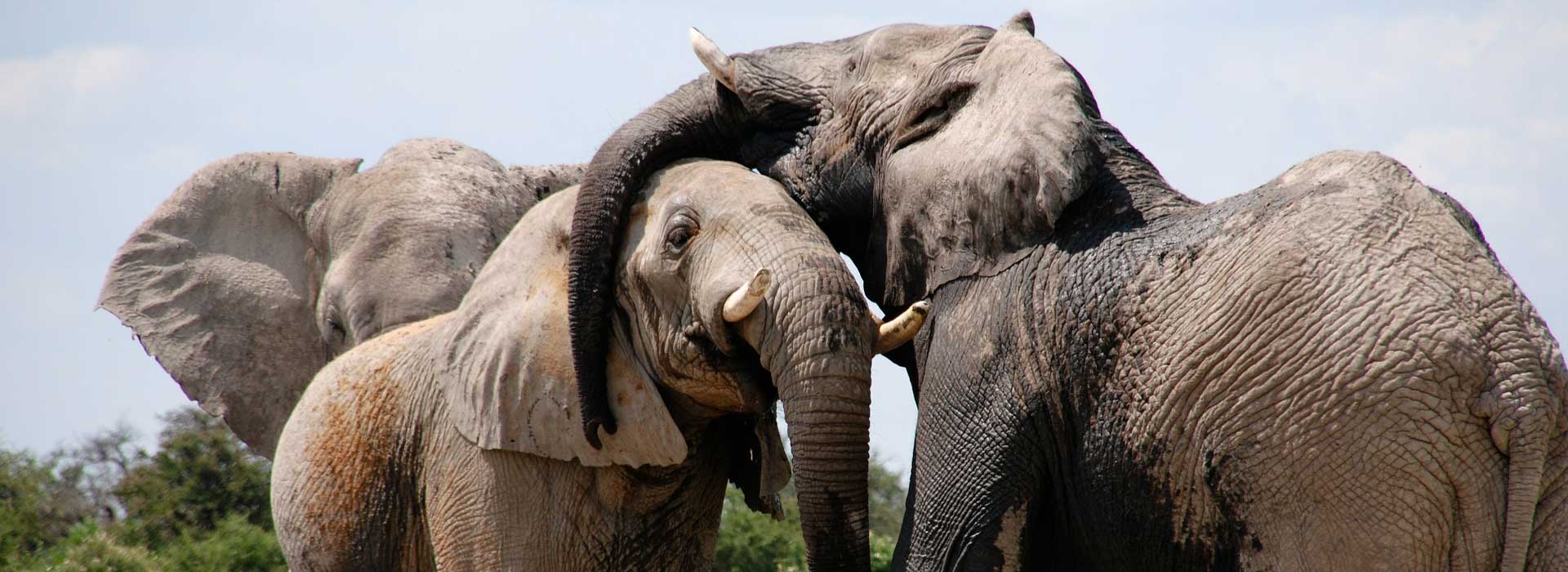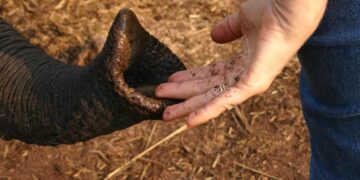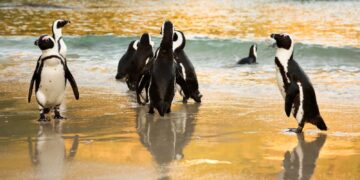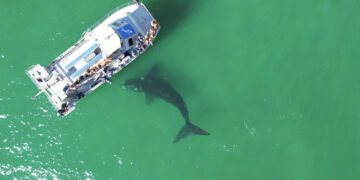Elephants are some of the most majestic and awe-inspiring creatures on the planet, and in South Africa, they hold a special place in the hearts of both locals and tourists alike.
South Africa is home to some of the most incredible wildlife on Earth — and among the most iconic animals roaming its landscapes are the African elephants. These massive creatures are an essential part of South Africa’s natural heritage, attracting visitors from all over the world and playing a key role in maintaining the health of the ecosystems they inhabit.
Fascinating Facts About African Elephants:
Size Matters: South Africa’s elephants are African savanna elephants (Loxodonta africana), the largest land animals on Earth. Bulls (males) can weigh up to 6,000 kg (13,000 lbs) and stand around 3 to 4 meters (10–13 feet) at the shoulder.
Tuskers of Tembe: Tembe Elephant Park is home to some of the last “great tuskers,” elephants whose tusks weigh over 45 kilograms (100 pounds) each! These giants are incredibly rare today.
Family First: Elephant herds in South Africa are led by a matriarch — the oldest and often wisest female. Herds usually consist of related females and their calves, forming close social bonds.
Highly Intelligent: Elephants have shown problem-solving abilities, long-term memory, and even signs of mourning when a herd member dies. In Kruger, elephants have been known to adapt their migration routes to avoid human settlements.
Water Seekers: During the dry winter season, elephants in South Africa often dig for water in dry riverbeds, creating mini watering holes that other animals also use.
Conservation Success Story: In the early 1900s, South Africa’s elephants were almost hunted to extinction. Thanks to major conservation efforts like the creation of Kruger National Park, their numbers have rebounded. However, careful population control is now necessary to prevent overpopulation and habitat destruction.
Eco-Engineers: Elephants help shape the environment by knocking down trees, creating clearings, and opening up grasslands. This benefits many other species, from insects to big predators.

Where You’ll Find Africa Elephants:
In South Africa, elephants are mostly found in protected areas and national parks, including:
Kruger National Park – Home to one of the largest elephant populations in Africa.
Elephant Sanctuary in Hartbeespoort – providing a safe haven and “halfway house” for African elephants. It provides fully guided interactive elephant educational programs covering elephant habits, dynamics, behavior and anatomy.
This Elephant Sanctuary in Hartbeespoort has African elephants and offers an interactive elephant experience with overnight accommodation. Book your elephant tour today!Mont Eco Private Game Reserve offers a luxurious Big Five safari experience just a few hours from Cape Town, nestled in the heart of the Klein Karoo. Spanning 6,500 hectares, this malaria-free reserve is home to Africa’s iconic Big Five—lion, leopard, rhino, buffalo, and elephant—set against the breathtaking landscapes of the Karoo . Guests can embark on guided game drives and bush walks led by expert rangers, providing intimate encounters with these incredible animals in their natural habitat. The reserve’s commitment to conservation and eco-friendly practices ensures a sustainable and authentic wildlife experience . For those visiting Cape Town and seeking a true safari adventure without the need to travel to Kruger National Park, Mont Eco delivers a unique and immersive experience in the Western Cape .
Elephant Sanctuary in The Crags, near Plettenberg Bay, has African elephants and offers an interactive elephant experience. We offer hands-on educational elephant interactions. This provides our guests with a far more intimate experience with the elephants. Our dedicated staff is committed to the use of positive reinforcement elephant training methods and as a result, we have relaxed elephants who enjoy interacting with our guests. Vist our website and Book your Elephant tour today.
Elephants are not just icons of Africa; they are vital players in the story of South Africa’s wild spaces. Their strength, intelligence, and social nature make them one of the most fascinating animals to observe. Thanks to dedicated conservation efforts, future generations in South Africa — and around the world — will hopefully continue to admire these extraordinary giants in their natural habitat.

















